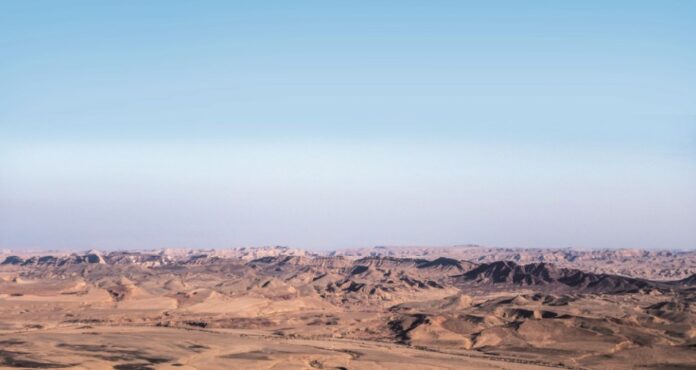Famines are an ever-present danger in some parts of the world. As Jesus Christ foretold, they appear to be increasing in frequency (Matthew 24:7).
They were common in Bible times. Usually they were the result of widespread and prolonged drought. They are mentioned several times in both Old and New Testaments, and always with fear.
One of the earliest famines on record occurred in the days of Isaac. Like his father Abraham, Isaac was a tent dweller and farmer, and his fortunes very much linked to the weather. If there was no rain, the grass failed and his animals died. If food became impossibly scarce, his family’s whole future was at stake.
When this particular famine settled over the land, the obvious thing for Isaac to do was to move down to Egypt. With his nomadic mode of living, this would have been no great hardship. It was a straightforward business decision, to strike tents and set off for that green ribbon of land, watered by the ever-flowing Nile where corn still grew in plenty. As he was contemplating the move, Isaac had a visitor. It was the angel of the Lord, who appeared to him with a message. ‘Do not go down to Egypt,’ he said (Genesis 26:2).
‘So,’ the record continues, ‘Isaac settled in Gerar’ (v. 6). Gerar is in the land of the Philistines, modern Gaza. We are not told why he was warned away from Egypt. Perhaps that land of civilisation and splendour might have been so tempting that he would have been loath to come back when the famine was over. The important thing is, Isaac did what he was asked. He went against his judgement and stayed where he was, because God commanded it.
Harvest
Observe now what followed. ‘Isaac sowed in that land and reaped in the same year a hundredfold’ (v. 12). There is not much recorded about the life of Isaac, but this little cameo that has been preserved is full of instruction. Suppose you had been in his position, with hundreds of mouths to feed. Once your reserves of dried meat and grain were exhausted, to stay on in that gaunt, parched land would be suicide. You would be under tremendous pressure to move on. Think of the reproachful looks of the hungry animals, and the growing resentment of the servants as they questioned your dallying in the face of danger. Yet Isaac stayed where he was. More puzzling than that, he actually used up even more of the precious corn by sowing seeds in the ground.
Isaac had been doing some thinking. If God had asked him to give up the security of Egypt, he would argue, He must surely intend to provide for the family if they stayed behind. So he sowed as usual, and waited, and when the harvest came, he reaped a tremendous crop. It was enough to keep them supplied for years—in fact, he became rich on the proceeds (v. 13).
Isaac’s faith is another example of the kind we have met before in these articles. The instinct for self-preservation pulled him one way, but duty to God another. He obeyed God, and God saw that he did not suffer for it. It is a classic illustration of the teaching of Jesus in the New Testament, that we should not be anxious about our life, ‘saying, “What shall we eat?” or “What shall we drink?” or “What shall we wear?” For the Gentiles seek after all these things, and your heavenly Father knows that you need them all. But seek first the kingdom of God and his righteousness, and all these things will be added to you’ (Matthew 6:31–33).
Some of us know what it’s like to live from day to day, with the ever-present danger of a failed harvest or some other catastrophe. In other countries we may be cushioned from such catastrophes by a welfare system or insurance. But for all of us, life is still fragile and uncertain. Our bodies can go irreparably wrong. An economic crisis can destroy our savings. War could wreck our lives overnight.
In fact, as Isaac found, the only real security in life comes from God Who gave it. If we yield ourselves to His care, and seek wholeheartedly to do His will, He will not let us down.
‘I have been young,’ wrote the Psalmist, ‘and now am old, yet I have not seen the righteous forsaken or his children begging for bread’ (Psalm 37:25).
David Pearce
(to be continued)


